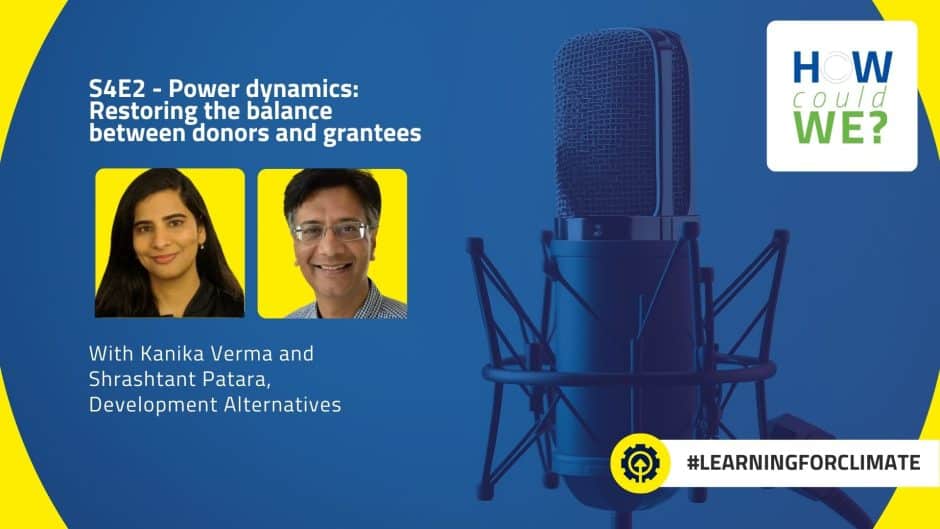How Could We? transform development funding? – Episode 2 with Kanika Verma and Shrashtant Patara

In Season 4 of the “How Could We?” podcast, hosts Anne-Sophie Garrigou and Solla Zophoniasdottir explore the need to redefine development funding. This season features insights from the Systems Innovation Learning Partnership (SILP), a collaboration between the Swedish International Development Cooperation Agency (Sida) and Climate KIC. SILP is designed to foster adaptive and innovative approaches to development work, emphasising trust-building, flexible funding mechanisms, and genuine local capacity building.
Meet our guests: Kanika Verma and Shrashtant Patara
In the second episode of the season, we talk to Kanika Verma and Shrashtant Patara, from Development Alternatives, an organisation based in India that supports women e-rickshaw entrepreneurs in the state of Uttar Pradesh. Since its inception in 2018, the project has developed a model for how low-carbon transportation can improve safety, empower women and reduce carbon emissions. Development Alternatives received funding through the SILP experimentation fund. Their insights into microgrants are interesting to understand the shifts needed in development funding.
“The project is a green and safe mobility project for women, led by an e-rickshaw network. It is a project about women deciding or choosing the future they want to create where mobility is no longer a challenge. It’s a major issue in most parts of India where women do not have access to safe transport. Not only does this inhibit them from making choices for their livelihood, but it also inhibits them from doing recreational activities. And that is what the project is about: removing this constraint so that women can create the future they want – the future they deserve,” says Kanika Verma.
This episode is a must-listen for anyone interested in innovative funding mechanisms. It provides a comprehensive look at how we can collectively reimagine funding practices to support transformative change on the ground.
[custom_script]
Episode highlights
Listen to this episode if you are curious about:
- How biases such as internalised racism and cultural supremacy affect budget allocation and project evaluation, often sidelining initiatives from marginalised communities
- How small, flexible funds, such as the SILP microgrants, can support promising experimental ideas and transform the power dynamics between donors and grantees
- What Kanika Verma and Shrashtant Patara learned while exploring and implementing their ideas without the typical financial pressures
- The impact of a learning-oriented approach, and how it leads to more effective and adapted solutions
- How donors can address existing inequalities by ensuring diverse knowledge and voices are included in their funding processes
- What changes when funding organisations act as partners with grantees rather than just funders
This episode underscores the importance of rethinking traditional funding mechanisms to foster inclusive, innovative, and adaptive development projects. It highlights the significant impact that even small, flexible grants can have on empowering marginalised communities and driving systemic change.
If you have missed it, listen to the first episode of the season with Any Sulistyowati, one of the Community Grantmakers for the SILP project, where she talks about the importance of participatory decision-making.
The third and last episode of the season will feature Marion Icudena, another recipient of the SILP Experimentation Fund.
The How Could We? Podcast is dedicated to exploring transformative solutions and nurturing hope for a climate-resilient, inclusive, and beautiful future for all. In each episode, we engage in thought-provoking conversations with individuals who are pioneering systemic change. Listen to our previous series on Spotify, Amazon Music or Apple Podcasts.
This podcast is produced by Bárbara Mendes-Jorge.
Listen on Amazon Music, on Apple Podcasts and on Spotify.
